When we began to consider goats for dairy, for the purpose of home milk and cheese production, it did not take too long for us to zero in on Nigerian Dwarf goats as being the breed that we wanted to try. Now, being a young family with small children, there were two things that stood out to us about the Nigerian Dwarf goat: their reputed sweet and creamy milk (due to high butterfat content) and the fact that they were small and would fit better size-wise with our young kids. Having to be outside often for farm chores with our kids in tow, the thought of not having to worry about our kids around standard-sized dairy goats appealed to us.
So, without further ado, we researched breeders and began to put a herd together. Now that we have had Nigerian Dwarf goats for a number of years, I am happy to say that we have not been disappointed! Additionally, we have learned a lot more about this breed and I have to say that our initial reasons for choosing this breed was just scratching the surface.
Milk Quality + Production
The number one reason why we have goats at all is to produce milk for our cow’s-milk intolerant family members (3 of the 5 of us!). The first time we tasted milk from our Nigerian Dwarf goats we were blown away by the sweet and creamy taste. Our kids LOVE this fresh milk that doesn’t even have a hint of goaty flavour – you wouldn’t know its goats milk if we didn’t tell you! I believe there are a few reasons for this, including farm freshness and proper handling and storage; but the chief reason why we love this milk so much is the high butterfat. Nigerian Dwarf goats have the highest butterfat content of all registered dairy goat breeds. Producing 1 to 2 litres of creamy milk with 6-10% butterfat a day, these miniature milkers are in a league of their own when compared to the butterfat of other breeds (2-6%). Although not as capacious as their standard-sized counterparts, the milk quality and taste is hard to beat!

Fresh Nigerian Dwarf goat milk being weighed on the farm. 
Taffy’s third freshening udder at five weeks fresh. 
Nigerian Dwarf goat on the milkstand.
Temperament
Nigerian Dwarf goats are gentle, curious, and a little bit stubborn. Goats in general are very clever, observant, and inquisitive; and we have had some Nigerian Dwarf goats in particular who have really kept us on our toes with their panache for mischief! We’re talking goats who can apparently fly over more than adequate fencing; and goats on top of the barn roof (more than once, I’m afraid).
Despite their suspicious nature when it comes to anything “new”, whether it be my brand new pink iPhone that I’m trying to take photos of them with, or the fact that it is time for their routine hoof-trimmings, we have found that these little climbers are easy to train. Our girls come to know exactly when it is their turn to be milked – in fact, they develop their own pecking order of seniority for who gets to come out next – and they will jump up onto the milk stand by themselves and wait for their grain ration. Once they come to trust us, most of our goats greet us at once when we enter the barn and vie to be the lucky goat to have its neck and chin scratched. Additionally, we draw much enjoyment from watching the herd interactions of this very social species, from herd queens and bossy ladies to matriarchs who help “mommy” new kids.
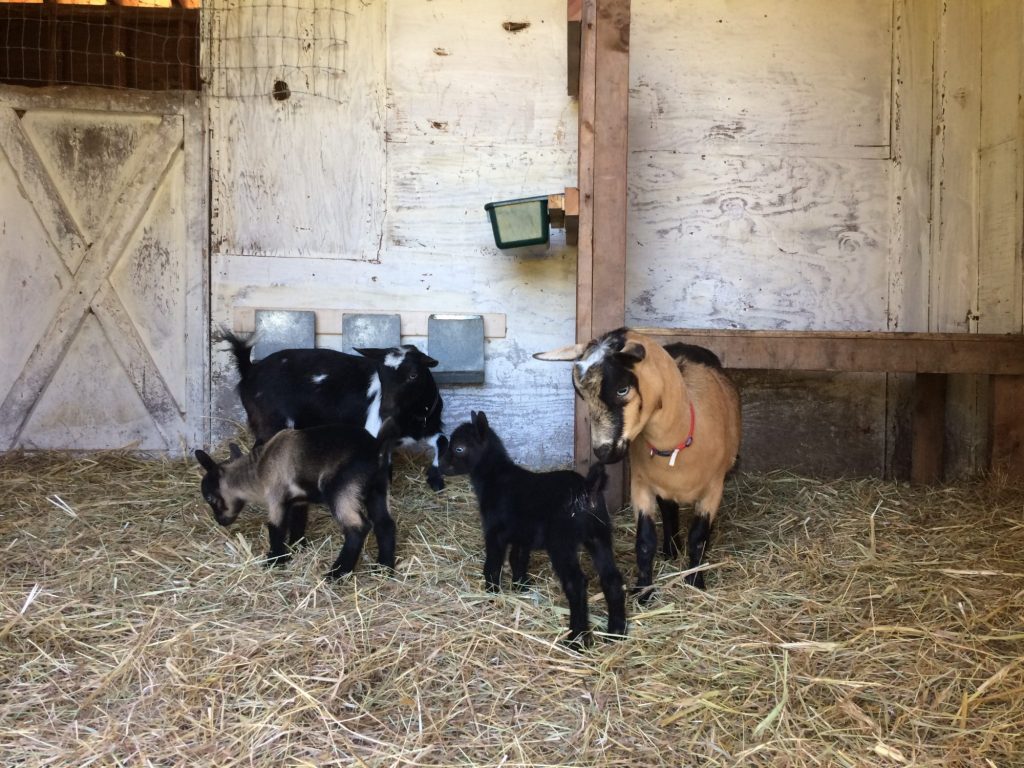
Small Size
We appreciate the small size of these goats around our little kids and the children of our family and friends. With bucks usually no more than 23″ high at the withers and does no more than 22″ high, Nigerian Dwarfs are sometimes fondly called “knee-high goats”. Mature size is usually about 75 pounds which makes handling for kiddings, hoof trimmings, vaccinations, and blood draws easy. We do find that we prefer a goat at the higher end of this height allowance for optimal space between udder floor and milk stand base which gives more room for milking equipment. Overall, their size makes the very economical producers that are a great fit for small-scale properties.
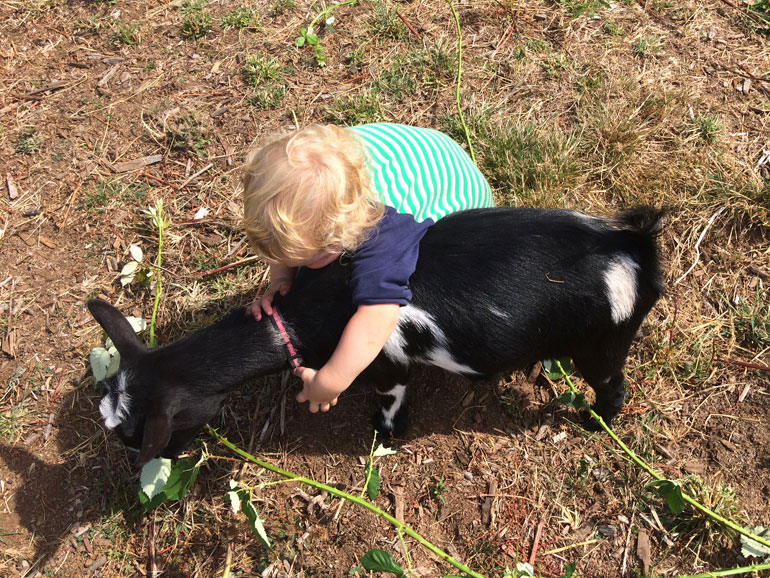
Colour
There is seemingly no end to the variety of colour that the Nigerian Dwarf goat brings. A herd of Nigerian Dwarf goats out on the pasture is a rich assortment of spots, stripes, darks, and lights. The colours that appear at kiddings never cease to surprise! Even with the frequent litters of triplets, quadruplets, and even quintuplets, each kid can be completely unique. While our focus is on conformation and udder qualities that are best-suited to good milk production, the beauty of a herd of Nigerian Dwarf goats dotting the landscape is a nice bonus.
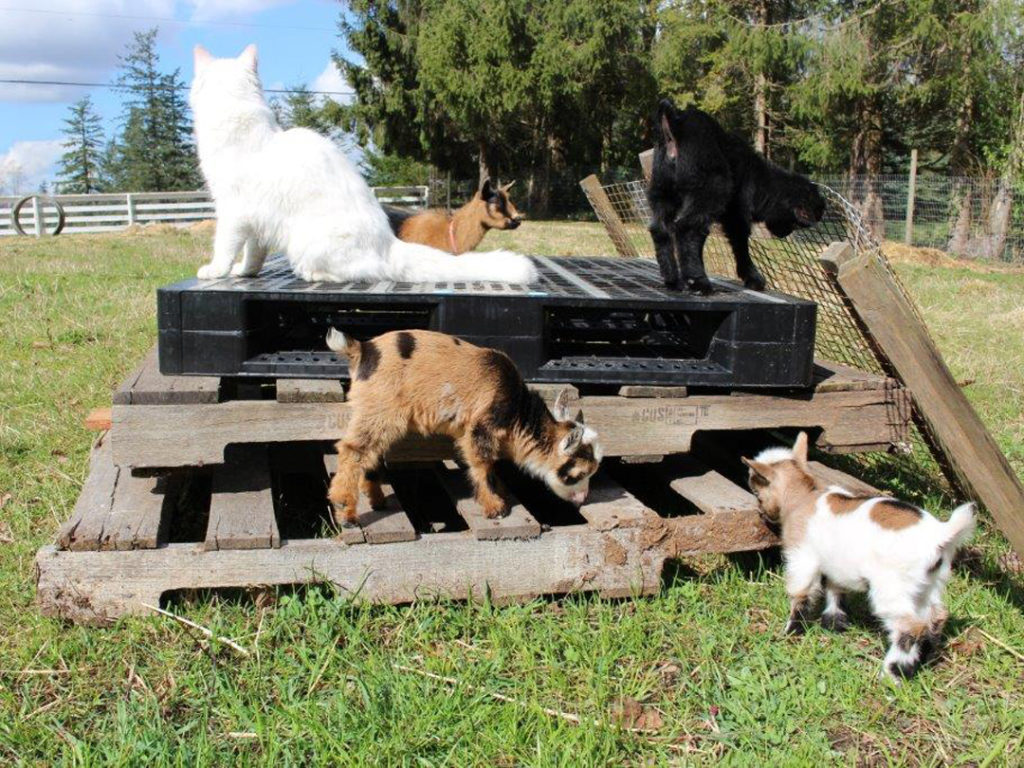
So all in all, while the goats came with a strict learning curve for us and took a couple of years to really get the hang of, from kidding kits to annual blood draws to socializing dam-raised kids to housing methods; we have found this particular breed of goats to be very rewarding. They not only offer to us what we hoped they would (small goats to have around our small kids and to produce delicious milk); but have also exceeded our expectations and despite their small stature, they’ve made a large impression on us. For our farm scale, lifestyle, and dietary needs, these fierce little milkers have a bright future!
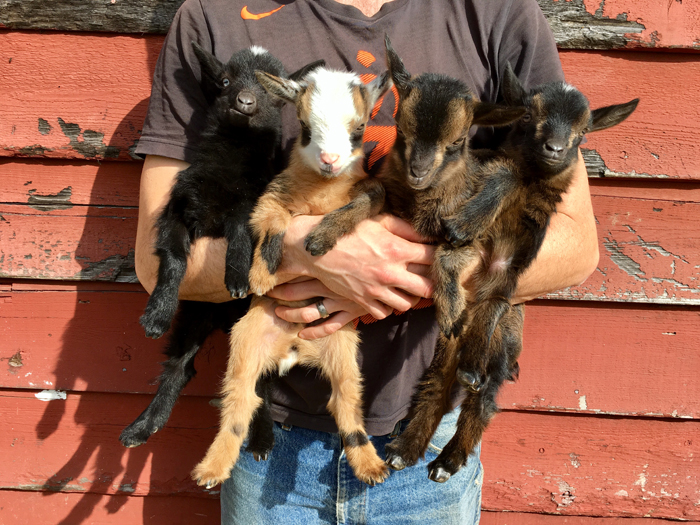
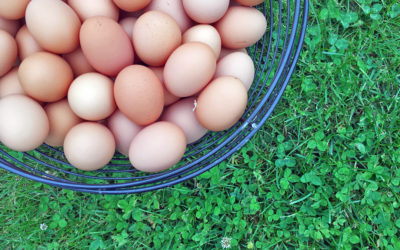
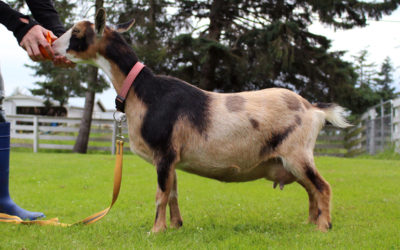
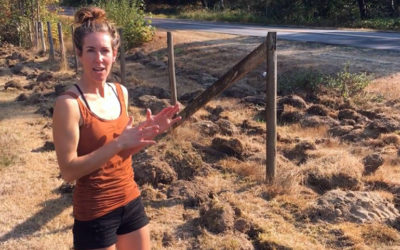

0 Comments